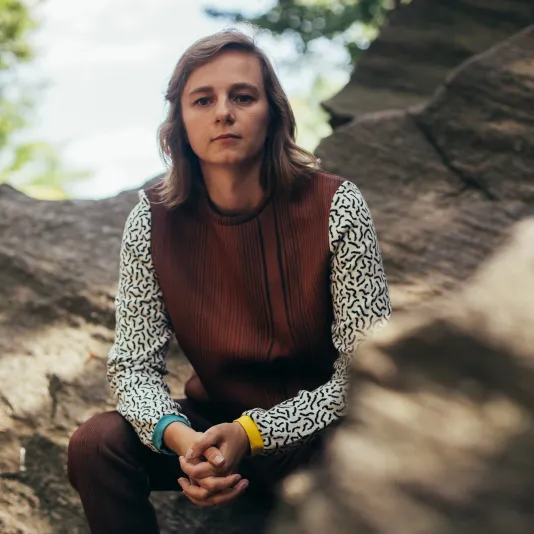The 2023 Max Wasserman Forum: Altered Access brings together artists, educators, and curators to discuss current disability discourse within the arts and museum institutions.
Learn more about participating speakers and moderators below.
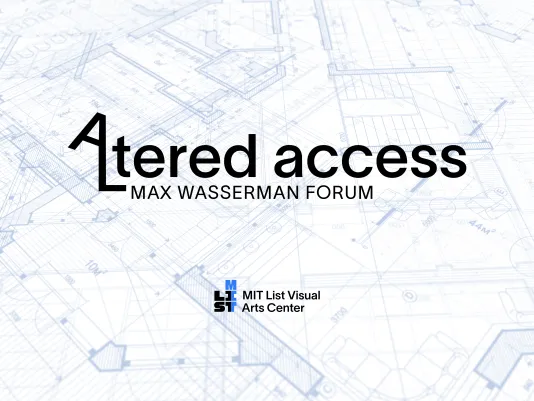
Panteha Abareshi was born in Montreal, Canada, and currently lives and works in Los Angeles. She received a BFA from the University of Southern California’s Roski School of Art and Design. Abareshi has previously performed and exhibited at Kunsthaus Zürich; Museum für Moderne Kunst, Frankfurt; the Institute of Contemporary Art, Los Angeles; Human Resources, Los Angeles; and Los Angeles Municipal Art Gallery; among others.
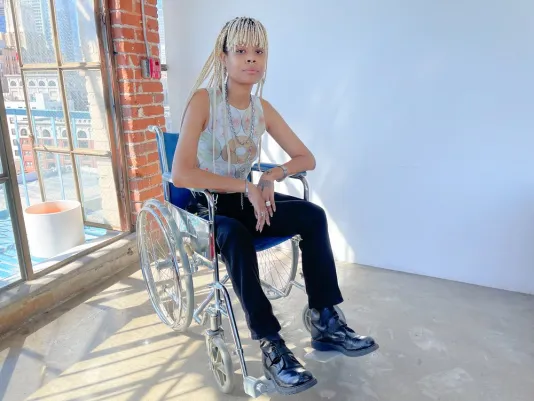
Owólabi Aboyade (William Copeland) is a father, an MC (Will See Music), writer, editor, climate justice organizer, and decolonizing facilitator from Detroit. He makes hip-hop anthems, zines, community care circles, and cultural exchanges and writes articles that explore what liberation can look, feel, and sound like.
As a writer, Aboyade shares his political analysis, creative nonfiction, poems, and short stories in various publications, including Geez magazine, Audubon magazine,Hood Communist, and more. He is also the co-creator of Bullet*Train, a digital zine chronicling Detroit’s revolutionary culture in 2020.
Navigating kidney failure since 1990, an acute health crisis in 2017 led him to organize around disability justice and community care. He cofounded and facilitates Relentless Bodies, a Detroit-based creative disability and healing justice collective.
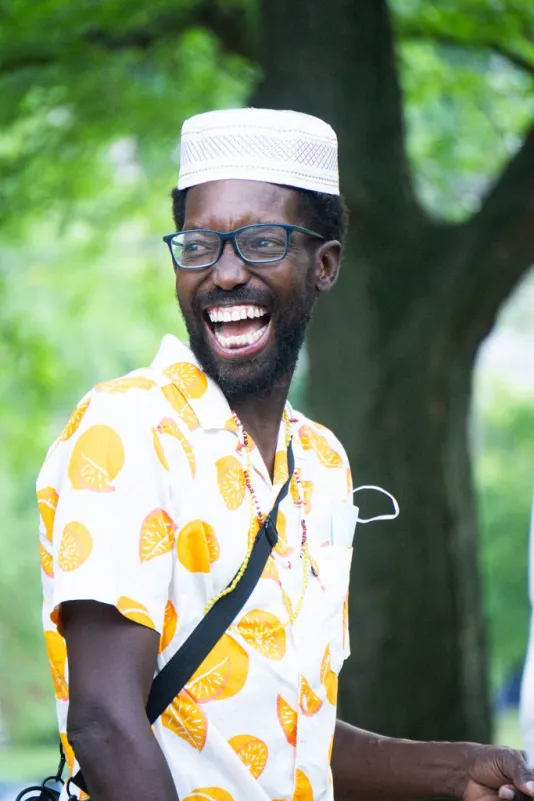
Emily Barker is an artist living in Los Angeles. They were born in 1992 in San Diego, grew up in Georgia, and studied at the School of the Art Institute of Chicago. They showed in the 2022 Whitney Biennial, Museum für Moderne Kunst, Frankfurt, and recently had their second solo show at Carlye Packer gallery. They’ve given artist talks at the Whitney Museum of American Art, New York; University of California Los Angeles; the Royal Academy of Art, London; Otis College of Art and Design, Los Angeles; and others. They have been highlighted in over thirty pieces of press and featured in Dazed 100, Hyperallergic’s 2021 Culture Shifters, Vogue, and a documentary on their practice for PBS’s Artbound by Dolly Li.
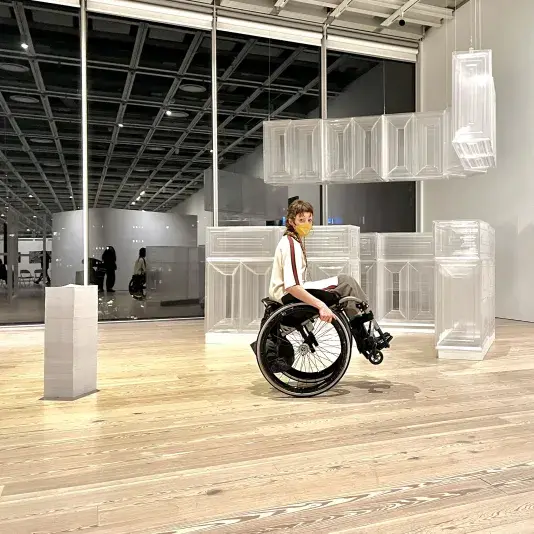
Taraneh Fazeli is an Iranian-American independent curator who, prior to 2016, worked at arts organizations such as Artforum, e-flux, Triple Canopy, and the New Museum. Her recent approach to cultural organizing is rooted at the intersection of the disability, diasporic, queer, and creative communities she belongs to. A spring 2022 Andy Warhol Foundation Curatorial Research Fellowship is supporting the production of Sick Time, Sleepy Time, Crip Time, coedited with Cannach MacBride and Relentless Bodies. This field guide to co-creating accessible worlds emerges from a homonymous peripatetic exhibition and community program series Fazeli curated between 2016 and 2020, which addressed the politics of disability, health, race, and care.
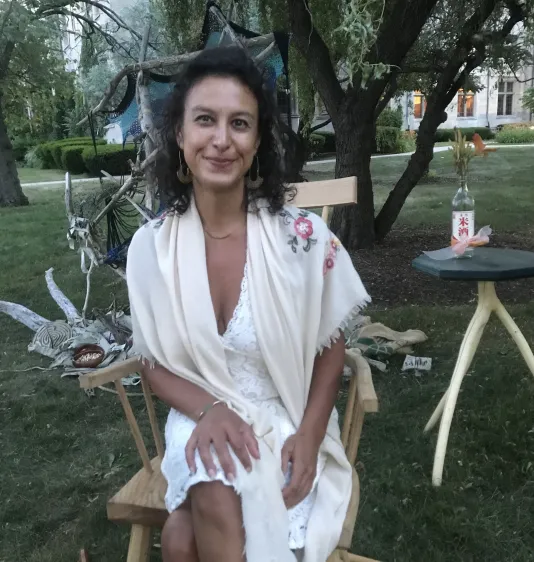
Kevin Gotkin is an access ecologist, distinction merchant, institutional critic, and community organizer. They have been organizing in the disability art worlds of Lenapehoking (so-called New York City) since 2016, when they cofounded Disability/Arts/NYC with Simi Linton to shape a public platform for disability artistry. They currently serve as Organizer in the disability arts collective Kinetic Light. They help steward the Critical Design Lab (2022 United States Artist Fellow) and the REMOTE ACCESS party collective. In 2021, they were an inaugural member of Creative Time’s Think Tank. They received their PhD from the University of Pennsylvania in 2018 and were Visiting Assistant Professor of Media, Culture, and Communication at NYU until 2021.
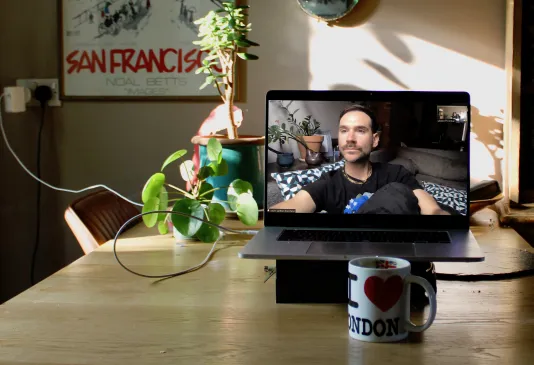
Credit: Louise Hickman. Image courtesy the artist.
Sara Hendren is a humanist in tech—an artist, design researcher, writer, and professor at Olin College of Engineering, Needham, Massachusetts. Her book, What Can a Body Do? How We Meet the Built World, explores the places where disability shows up in design at all scales: assistive technology, furniture, architecture, urban planning, and more. It was named one of the Best Books of 2020 by NPR and won the 2021 Science in Society Journalism book prize. Her art and design works have been exhibited in museums worldwide and are held in the permanent collections of the Museum of Modern Art, New York, and Cooper Hewitt, New York. In 2021 and 2022, she was Lecturer in Architecture at Harvard Graduate School of Design and a fellow in Education Policy at the New America think tank, where she was researching the future of work for adults with cognitive and developmental disabilities.
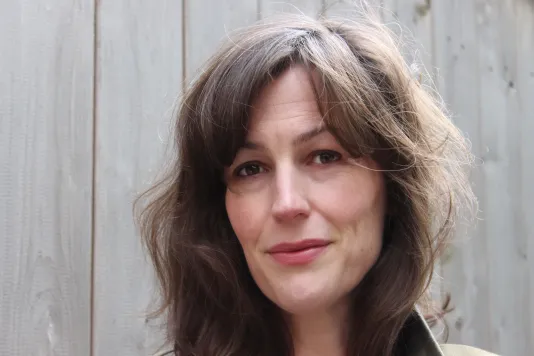
Christopher Robert Jones and Liza Sylvestre are artists and writers based in Illinois. They are Research Assistant Professors at the University of Illinois Urbana-Champaign, where they cofounded Crip*—Cripistemology and the Arts, a transdisciplinary initiative housed within the College of Fine and Applied Arts.
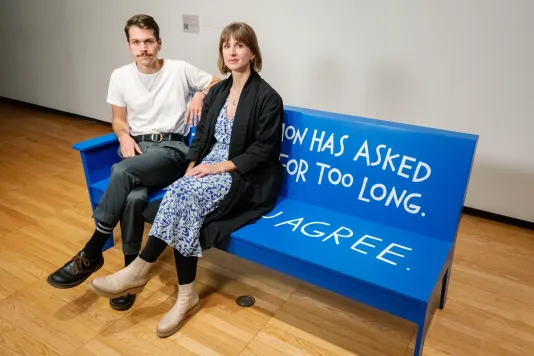
Photo by L. Brian Stauffer. Image courtesy the artists.
Noëmi Lakmaier is an Austrian-born live/performance artist living and working in East London. They have performed and exhibited widely in the UK and internationally. As a queer, disabled person and an immigrant to the UK, identity and how we relate to ourselves and others in the world, in an embodied way, are core interests in their site- and context-responsive practice. They are also an existential-phenomenological psychotherapist with a particular interest in the minority experience, gender, sexuality, disability, identity, intersectionality, and trauma.
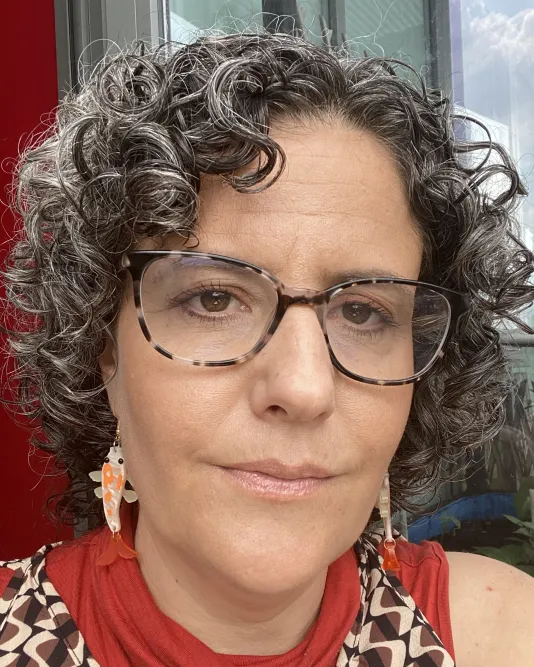
Yo-Yo Lin 林友友 is a Taiwanese-American interdisciplinary media artist who explores the possibilities of self-knowledge within emerging, embodied technologies. She often uses video, animation, live performance, and sound design to create meditative “memoryscapes.” Her recent body of work reveals and revalues the complex realities of living with chronic illness and intergenerational trauma. She creates openings into these realities through spaces, performances, and tools. Her practice often facilitates sites for community-centered abundance, developing into physical and virtual media installations, workshops, accessible nightlife parties, and artist collectives.
She was a 2019 Artist-in-Residence at Eyebeam, a 2020 Open Call Recipient for the Shed, and the 2021 Red Burns Fellow at NYU Tisch ITP/IMA. She has shown work at international multimedia art galleries (Human Resources, Los Angeles; Lincoln Center, New York; La Corte Arte Contemporanea, Florence), film festivals (New York Film Festival and SXSW, Austin, Texas), performance venues (Gibney Dance and Ars Nova, both New York), and conferences (Allied Media Conference). Her work has been featured on NOWNESS and in Art in America and Surface magazines. She is the cofounder of ROTATIONS, a collaborative movement practice working toward deepening our understanding of artistry, disability, and access. Born and raised in Los Angeles, Yo-Yo now lives and works in New York City.
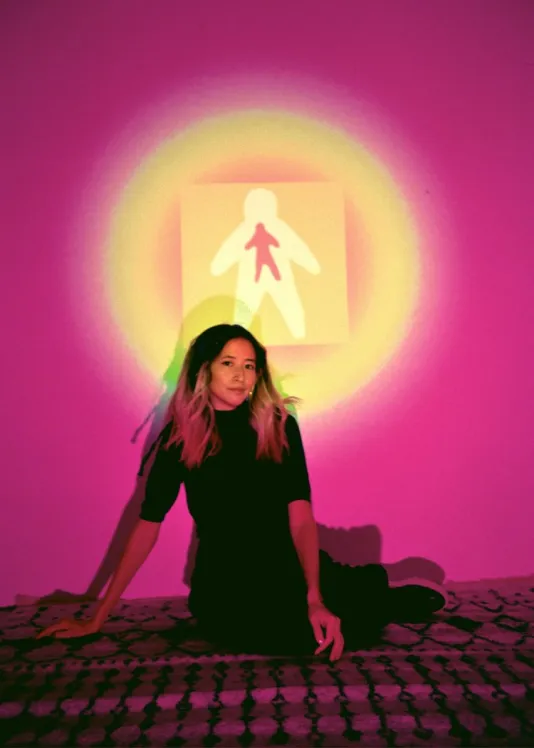
Photo credit: Dylan Pham. Image courtesy the artist.
Cannach MacBride is a white Scottish artist, writer, and editor. They are undertaking PhD research at University of the Arts London on more-than-aural listening, based in plural modes of attention and awareness, as a research methodology and a creative practice for honouring and digesting the depth of political-relational dependencies, and offering due care and responsibility. With Taraneh Fazeli and Relentless Bodies, they are co-editing Sick Time, Sleepy Time, Crip Time – a field guide, a book about co-creating accessible worlds by centering, rather than including, access.
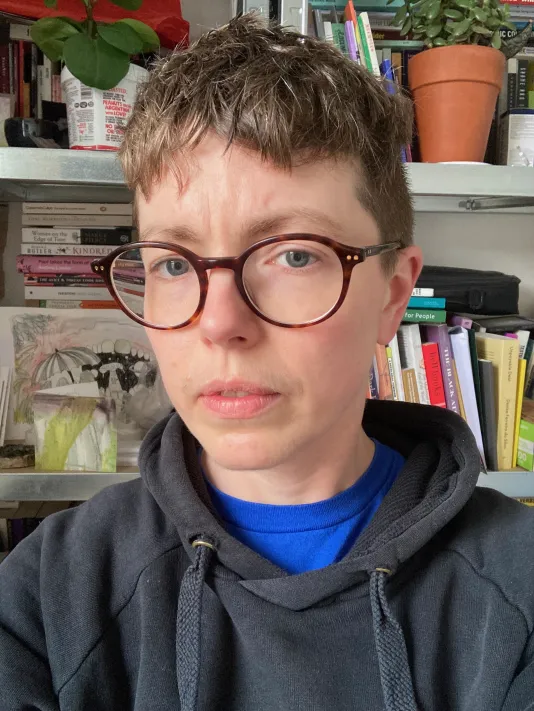
Park McArthur is an artist who experiments with personal and social meanings of debility, delay, and dependency under the guidance and instruction of disability. Recent solo exhibitions have taken place at Kunsthalle Bern, Switzerland; Maxwell Graham/Essex Street, New York; and the Museum of Modern Art, New York.
With Constantina Zavitsanos, McArthur has exhibited artworks and published texts in Women and Performance: AJournal of Feminist Theory and Trap Door: Trans Cultural Production and the Politics of Visibility. In 2019, McArthur joined the Department of Art and Design at Rutgers University, New Jersey, as Tepper Family Endowed Chair.
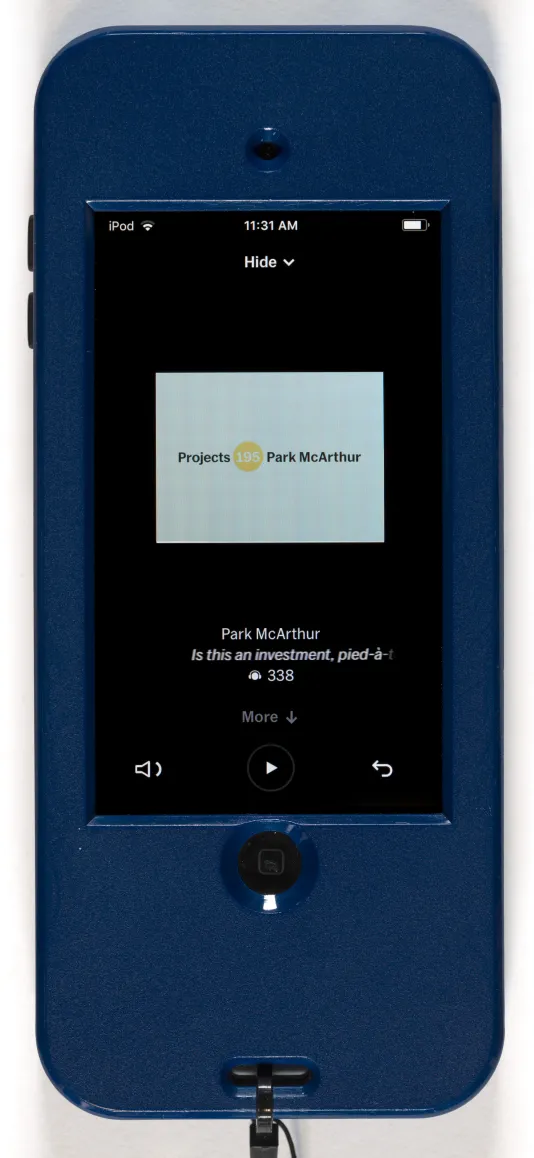
Park McArthur with Paula Stuttman PARA-SITES, 2018 42 minutes 16 seconds digital audio and transcript, English installation view at MoMA, wall label and online at https://www.moma.org/audio/playlist/55#tour-stop-807
Born in 1981, Carmen Papalia is a nonvisual social practice artist with chronic and episodic pain. He uses organizing strategies and improvisation to address his access to public space, art institutions, and visual culture. As a convener, he establishes welcoming spaces where disabled, sick, and chronically ill people can build capacity for care that they lack due to governmental failure and medical ableism. His work, which ranges from collaborative performance to public intervention, is a response to the harms of the Medical Model of Disability.
Papalia holds a BA from Simon Fraser University, British Columbia, Canada, and an MFA with a focus in Art and Social Practice from Portland State University, Oregon. He is an inaugural fellow of the Leonardo CripTech Incubator. In 2020, Papalia was one of twenty-five artists who received the Sobey Art Award; in 2019, he was a Sobey long-list recipient in the West Coast/Yukon region. His work has been featured at institutions such as the Solomon R. Guggenheim Museum, New York; Whitney Museum of American Art, New York; Tate Liverpool, UK; Banff Centre for Arts and Creativity, Canada; the Contemporary Art Gallery, Vancouver; Surrey Art Gallery, Vancouver; and Gallery Gachet, Vancouver.
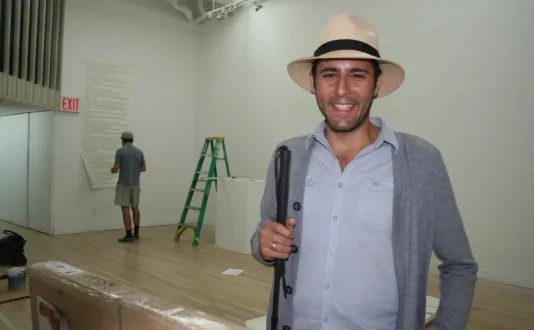
Finnegan Shannon is an artist who experiments with forms of access that intervene in ableist structures with humor, earnestness, and rage. Some of their recent work includes Anti-Stairs Club Lounge, an ongoing project that gathers people together who share an aversion to stairs; Alt Text as Poetry, a collaboration with Bojana Coklyat that explores the expressive potential of image description; and Do You Want Us Here or Not, a series of benches and cushions designed for exhibition spaces. They have done projects with the Queens Museum, New York; the High Line, New York; Museum für Moderne Kunst, Frankfurt; MCA Denver; moCa Cleveland; and Nook Gallery, Oakland. Their work has been supported by a Wynn Newhouse Award, an Eyebeam fellowship, and grants from Art Matters Foundation and Canada Council for the Arts. They live and work in Brooklyn, New York.
